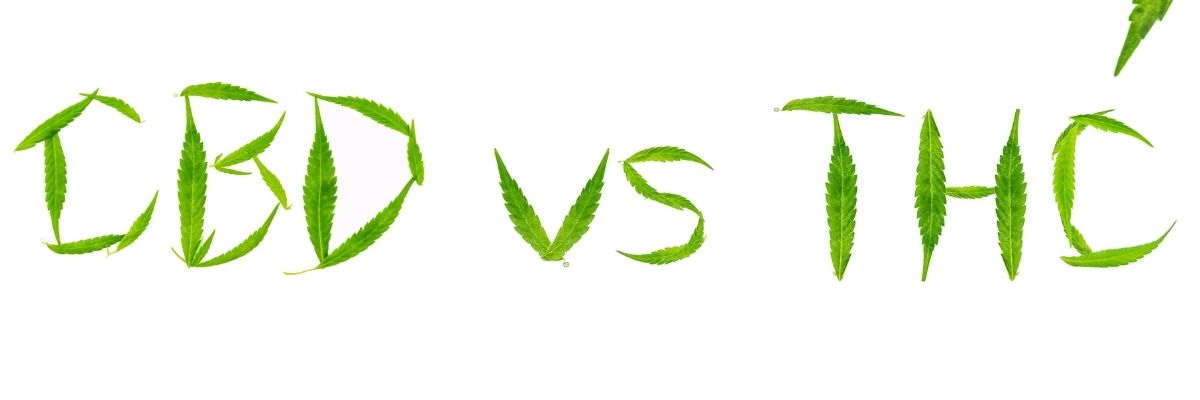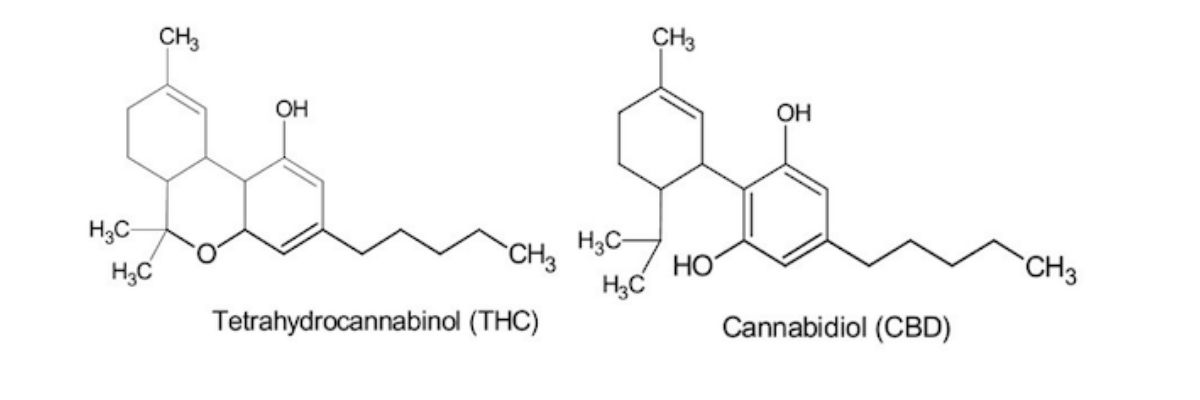
CBD derives from the Cannabis sativa plant (the Latin name). Legally in the UK CBD must contain only 0.2 percent of THC or less. THC is the psychoactive compound found in the Cannabis plant that produces the high sensation.
Both compounds interact with your body’s endocannabinoid system, but they have very different effects.
We have put together a summary of the similarities and differences and how both are used to help with treat certain conditions. Read on to learn more about these compounds. While they may have a lot in common, they have some key differences that determine how they’re used.
CBD vs. THC: Chemical structure
Both CBD and THC have the exact same molecular structure: 21 carbon atoms, 30 hydrogen atoms, and 2 oxygen atoms. A slight difference in how the atoms are arranged accounts for the differing effects on your body.
Both CBD and THC are chemically similar to your body’s endocannabinoids. This allows them to interact with your cannabinoid receptors.
The interaction affects the release of neurotransmitters in your brain. Neurotransmitters are chemicals responsible for relaying messages between cells and have roles in pain, immune function, stress, and sleep, to name a few.

CBD vs. THC: Psychoactive components
Despite their similar chemical structures, CBD and THC don’t have the same psychoactive effects. CBD is psychoactive, just not in the same manner as THC. It doesn’t produce the high associated with THC. CBD is shown to help with anxiety, depression, and seizures.
THC binds with the cannabinoid 1 (CB1) receptors in the brain. It produces a high or sense of euphoria.
CBD binds very weakly, if at all, to CB1 receptors. CBD needs THC to bind to the CB1 receptor and, in turn, can help reduce some of the unwanted psychoactive effects of THC, such as euphoria or sedation.
CBD vs. THC: Legality
In the United Kingdom, all CBD products must contain less than 0.2% THC otherwise they are classed as illegal. All goods should be third party lab tested to prove that THC levels are below this point. With less than 0.2 % THC side effects such as feeling high and paranoia.
CBD vs. THC: Benefits
whilst medical claims cannot be proven, CBD and THC have many of the same benefits. They can provide relief from several of the same conditions. However, CBD doesn’t cause the euphoric effects that occur with THC. Some people may prefer to use CBD because of the lack of this side effect.
CBD is used to help with other various conditions, such as:
- Inflammation
- Sleep problems and Insomnia
- Pain management
- Psychosis or mental disorders
- Nausea
- Migraines
- Depression
- Anxiety
- Acne and skin treatments
THC is used to help with the following:
- Pain
- Muscle spasticity
- Insomnia
- Low appetite
- Nausea
- Anxiety
CBD vs. THC: Side effects
CBD is well tolerated, even in large doses. Research Trusted Source suggests any side effects that occur with CBD use are likely the result of drug-to-drug interactions between CBD and other medications you may be taking.
THC causes temporary side effects, such as:
- Increased heart rate
- Coordination problems
- Dry mouth
- Red eyes
- Slower reaction times
- Memory loss
- Anxiety
CBD’s side effects may include:
- Appetite changes
- Fatigue
- Weight loss
THC use may be connected to long-term negative psychiatric effects. This is especially true for adolescents who consume large amounts of THC, though there’s no conclusive evidence that using cannabis causes psychiatric disorders like schizophrenia.
Disclaimer:
CBD is sold as a food supplement, and as a result, It’s illegal to claim it treats, prevents, or helps cure an illness or disease. No health claims have been made in this article.
